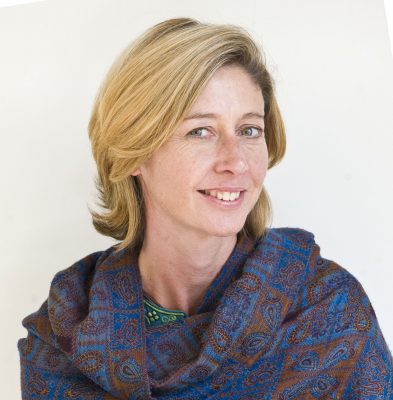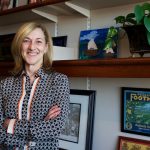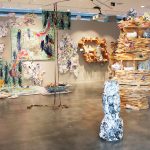
The American Institute of Afghanistan Studies held the first annual lecture series featuring renowned British foreign correspondent and author Christina Lamb at the Boston University Castle Wednesday evening. The inaugural lecture, open to students and the public alike, focused on Lamb’s experiences covering Afghanistan and other countries in the Middle Eastern region over the last several decades.
Lamb’s reporting from the Middle East and time spent in Washington, D.C. as a global fellow for the Wilson Center for International Affairs has given her insights that few other lecturers have. Students and faculty were joined by attendees from outside of the university, as Lamb delved into issues regarding her experiences in a country that has seen conflict for most of her time as a journalist.
“I think as a woman journalist, she has a very unique perspective on what’s going on in Afghanistan, and from what’s going on from a Western perspective,” said Katherine Seaton, a second-year graduate student in BU’s Frederick S. Pardee School of Global Studies.
Lamb spoke on a wide range of topics regarding her time in Afghanistan. From years of reporting on Russian and Western coalition combat operations to personal tales of friendship and hotel-top vistas, her knowledge of the unstable region is impressive.
The audience consisted of students and professionals from around the world who posed questions about the people of Afghanistan. Shortly after the lecture, participants gathered for a reception with Lamb while enjoying traditional Afghan cuisine.
For students in several colleges, this event was a glimpse into what they are working toward here on campus. The international community is not only a large part of BU, but also a community that is expected be professionally impacted by the BU student body post-graduation.
“For communication students who are studying journalism this is really relevant,” said Jack Davidson, a second-year graduate student in Pardee.
Davidson attended Wednesday’s lecture because of his interest in the greater Islamic world, he said.
“I think to hear from someone who has had so many experiences and had such a career it can be very interesting for students of all stripes,” Davidson said.
Career insight was only one reason for bringing people to BU Castle on Wednesday. The desire to understand what is happening in countries like Afghanistan and Pakistan, and the role the United States continues to play in that part of the world, took the forefront of most interactions during the evening.
“Afghanistan is America’s longest war, and the West has spent all this money and lost a lot of lives,” Lamb said. “I think people want to know what it’s achieved and what the situation is now.”
It was not a night solely for Americans seeking to know more about aspects surrounding worldwide involvement in Afghanistan. Many guests from outside the United States attended the event to offer and gain varied perspectives in the international community.
“As a journalist [I knew] I would really like to attend and learn to see what the people here think about my country,” said Sayed Hashimi, 38, of Lynn, who recently arrived from Afghanistan. “Of course, this is very important.”
Relations between Afghanistan and the United States have been complicated and at times difficult to follow, Lamb said. From the Soviet invasion during the Cold War to the creation of Taliban and Al-Qaeda groups, the United States has often found itself changing its role in search of some sort of control or stability in the country.
“We can learn a lot from Afghanistan, and in terms of interventions,” Lamb said. “And why interventions don’t work.”
Western powers, and before that, countries such as the Soviet Union, have had difficulty with their decisions to enter Afghanistan. The goals are often clear at the onset of any military involvement, but have faded into a complex mixture of how, and when, to leave the region without creating a vacuum of power.
“I feel quite strongly that, you know, Afghan people generally have been victims,” Lamb said.
The lecture ended after Lamb fielded questions from several attendees with varying thoughts and perspectives. While discussing particular experiences was a major facet of conversation during the evening, the lecture was organized as the first of many talks aimed at local education.
“One of the things that we think that’s important to do is to encourage contemporary research in Afghanistan,” said Thomas Barfield, president of the American Institute of Afghanistan Studies and an anthropology professor in BU’s College of Arts and Sciences.
The goal of the inaugural lecture featuring Lamb, Barfield said, was to help the public, including students at BU, to better understand Afghanistan as a whole. Inviting a journalist as the lecture series’ first speaker was an intentional approach, to share the experiences of someone whose career uses narratives to inform people about the world, Barfield said.
Lamb agreed that this was a cause she was passionate about, saying, “I want people to understand why it’s important.”




